
God uses our ordinary lives to bring the good news to Angola, Zimbabwe, Guatemala and all around the world.


God uses our ordinary lives to bring the good news to Angola, Zimbabwe, Guatemala and all around the world.

Six Global Ministries missionaries share their stories.
Ź An education in business equips one finance officer to help churches rebuild in post-war Angola. PG. 2
Ź From a successful ministry in Brazil to service in the streets of Rome. PG. 4
Ź A lifelong desire for mission work is fulfilled in a call to teach in Sierra Leone. PG. 8
Ź More...
MISSIONARIES. VOLUNTEERS. PARTNERS. These are the individuals whose compassion and generosity inspired the people you will meet in these pages to serve as Global Ministries missionaries.
Individuals like you played one part in a bigger story—not only serving to directly meet needs, but also modeling Christ-likeness for others who would follow in their footsteps.
The stories of the six missionaries here testify to the connectedness of God’s church and to the role you play in the larger, global narrative of hope and transformation when you give of your time, talents and treasure to serve the least of these.
You are part of the bigger story of global mission. Respond today and financially support these Global Ministries missionaries.

What has always inspired Global Ministries missionary Ken Koome is the example other missionaries have set for him. As a child growing up in Nairobi, Kenya, Koome was part of a Methodist family: the grandson of an evangelist and the nephew of a bishop. This exposed him early on to the friendship and service of foreign missionaries.
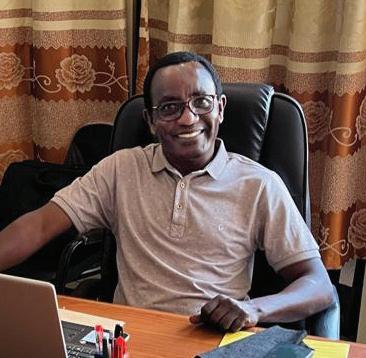
“I found myself surrounded by people who were called to come and serve my community,” he explains. “I really wanted to understand what motivates people to leave their motherland to go … where they are serving under very difficult circumstances. And you see them: they are really very happy to work that way.”
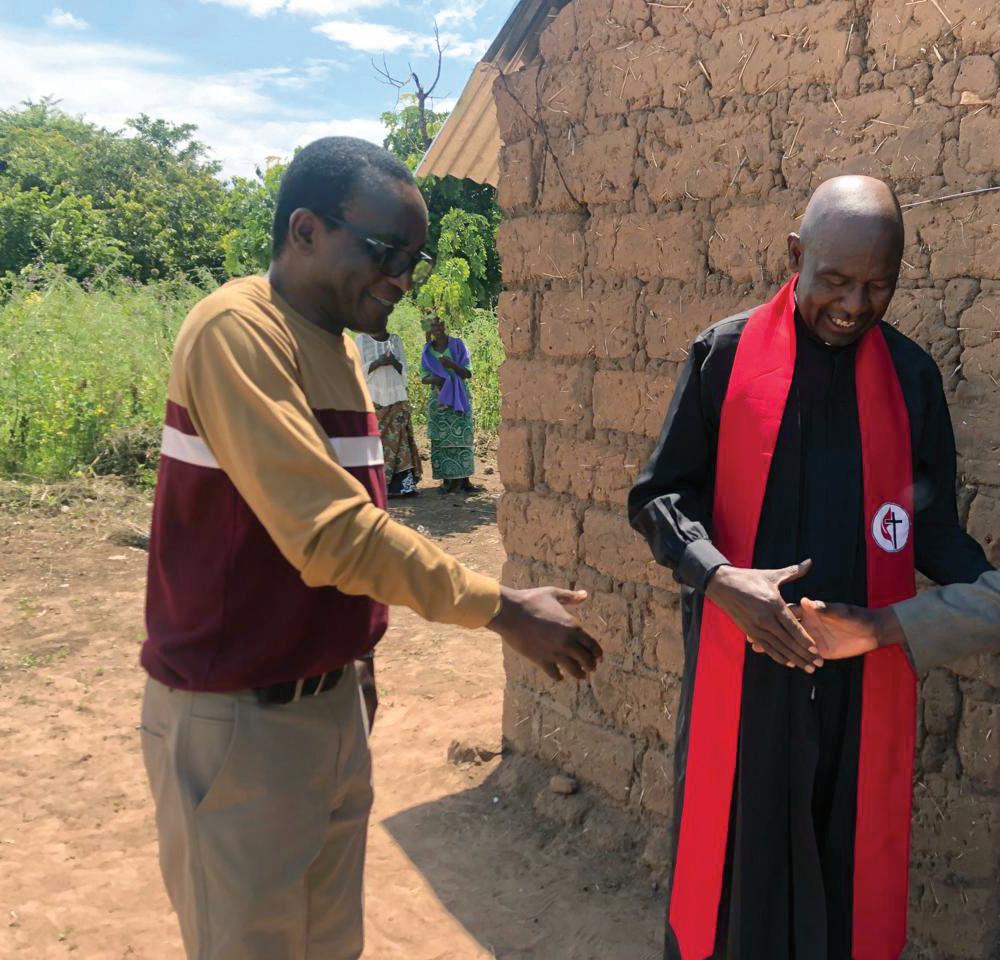

At that point in his life, Koome couldn’t imagine that he would one day have a similar calling. He focused on his education, studying finance, accounting and business administration in Kenya and the UK, before someone recognized a gift for service in him asked him to consider mission work, which he entered in 2006.
“There is no problem that has no solution,” says Koome. He maintains this resilient perspective even where he serves in Angola, a country still reeling from the effects of a decades-long civil war.
Koome served in Nigeria and Kenya before accepting the call to be the financial officer for the East Angola conference in 2013, a placement that came with its challenges. Learning Portuguese was a difficult but essential step in managing finances and communicating with both churches and banks. After a year of online learning, he was able to conduct business in Portuguese.
He also struggled to help churches and clergy understand the accountability structures, such as receipts and accounting reports, that ensure they continue to receive your support. And he experienced skepticism from Angolans who did not, at first, accept him—an African—as a missionary when their previous experience had been with missionaries from the US or UK.

Koome helps with the financial management of a cross-section of important ministries: agricultural programs, ministerial training, health care, evangelism, women’s empowerment, and children and youth ministries. He stays committed to nurturing these ministries, in spite of “emotionally draining” cultural learning curves and the struggles of a post-conflict society, by rooting himself in empathy and gratitude.
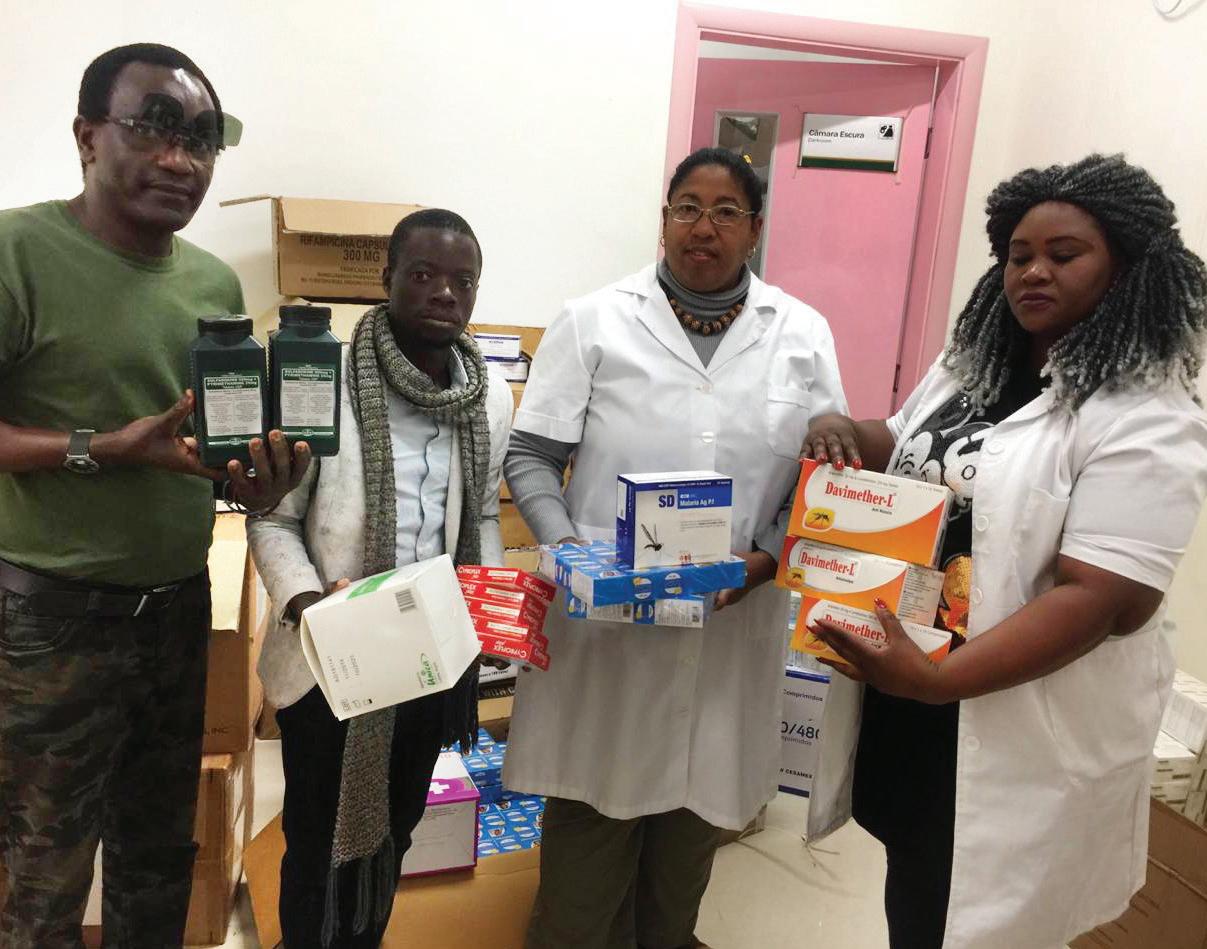
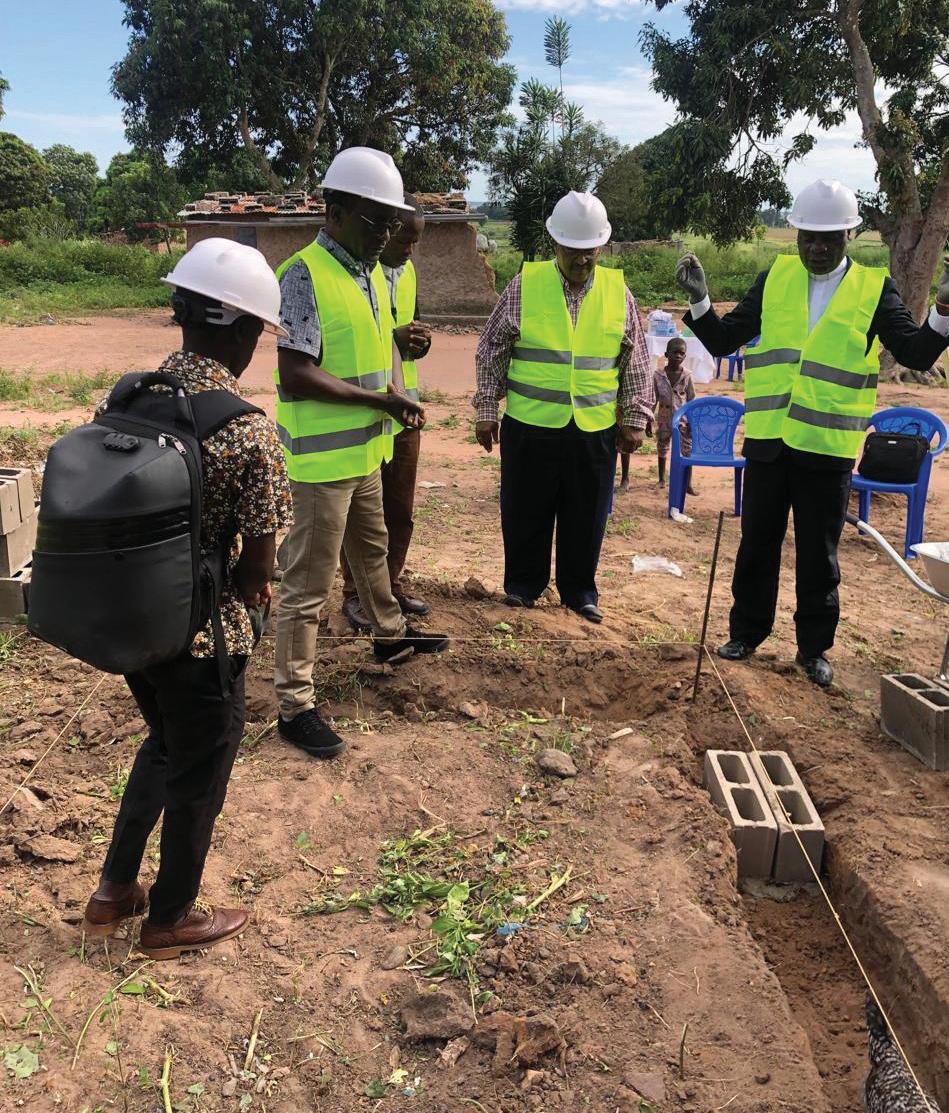
“I tell myself: what if it were me in that situation? These circumstances remind me that I am serving a living God and I am not exceptional to what others are going through.”
Koome also draws strength from the same communities that impacted him as a child: a global network of supporters and advocates like you. Angola’s civil war turned brother against brother and neighbor against neighbor. Even clergy and congregations are struggling to re-establish trust after so much horror. But Koome credits neutral partners with assisting in the healing process by offering support and empathy as they partner with the Angolan church in reconciliation efforts.
Koome also draws strength from the same communities that impacted him as a child: a global network of supporters and advocates like you.
“Sacrificing your time, your resources, to come and serve—to help—people you have never seen or met, people of no blood relation: that is something that has given me a lot of motivation.”
You are part of the bigger story.
Your financial support allows Global Ministries missionaries to serve more vulnerable communities. Use the card attached or give securely online by visiting giveumcmission.org/biggerstory.
Eliad Dias dos Santos is an immigrant. She is a missionary and a pastor, but on the streets of Rome, Italy, she is also an immigrant among thousands of other immigrants and refugees, and her foreignness is the familiarity that makes her a safe haven for others.
A conversion toward the least of these
Santos has served in Rome for two years. Prior to that she served for decades in her home of São Paulo, Brazil, as a pastor and a missionary in charge of Casa de Luz, a ministry for immigrant women and children. Several pivotal moments in her life brought her, eventually, to Rome.
“When I finished my pastoral training, I told God, ‘My life is for your work [among] the people the church doesn’t normally like to see.’”
The first was a shift in her dreams. Growing up in São Paulo, she wanted to be a radio announcer. But as she got older, she would help transport local children to church services, and she witnessed the difficult circumstances they lived in. Around the same time, she read Theology of Captivity and Liberation by Leonardo Boff, which impelled her toward pastoral ministry among the marginalized.
“When I decided to be a pastor,” she explains, “I worked in the projects with prostitutes. And my vision about God and the faith was transformed, because the lives of women working in
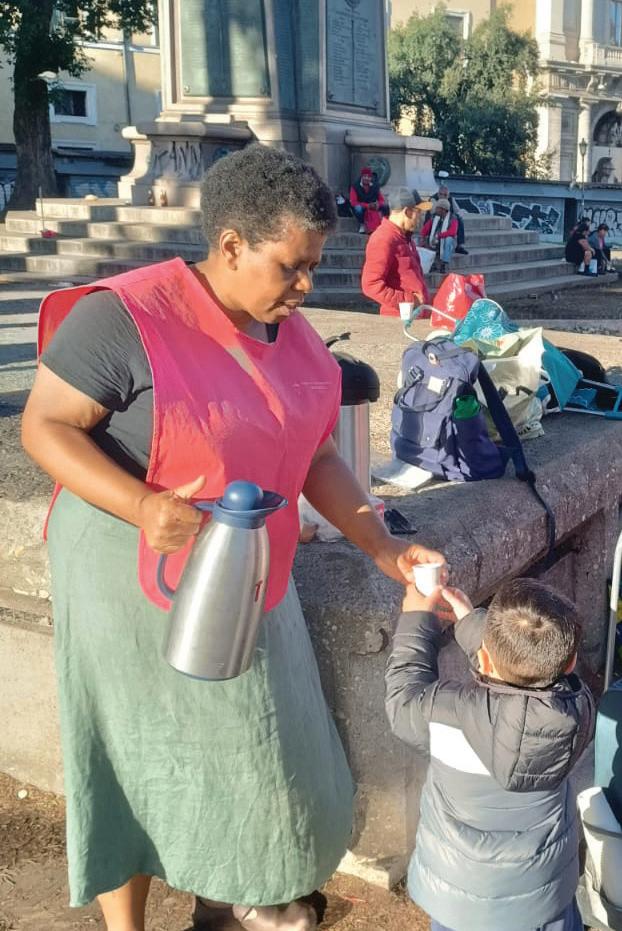
prostitution are so difficult. There are sometimes girls—I found two little girls, ages nine and six—in the streets! I said, ‘Oh God, this is not possible.’ When I finished my pastoral training, I told God, ‘My life is for your work [among] the people the church doesn’t normally like to see.’”
Casa de Luz was so successful in its outreach and its economic empowerment of women that, when the migrant and refugee crisis ballooned in Italy, the UMC and Global Ministries sent Santos to start similar programs in partnership with the Italian United Methodist Church.
In Rome, Santos runs a breakfast ministry for unhoused immigrants, most of whom come from countries in South America and Africa, as well as Pakistan and India. Social services are scant in Rome, so she helps newcomers obtain documents, learn Italian, and find jobs and housing. She also hosts workshops and classes at church to fill in the social service gaps in these areas. Your generosity enhances this programming, giving more people an opportunity to land on their feet in Rome.
Through the breakfast outreach, she develops relationships with Rome’s most vulnerable: “The first questions I ask people are, ‘What are you doing in Italy? What would you like to be or do here in Rome? I would like to help you with your dream. I know it is very difficult to be an immigrant here, because I am an immigrant here.’”
Besides the structured ministries at the church, Santos offers what she believes is the most important service: a listening ear.



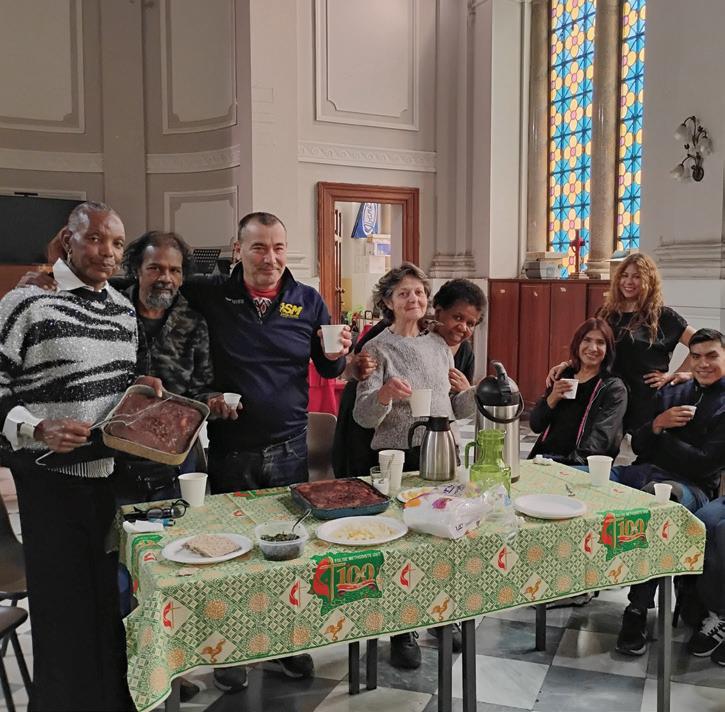
She lets people tell their stories, sharing her personal phone number and inviting those struggling with addiction or homelessness to walk the streets with her and join her ministry. They respond with deep gratitude for her love and her presence.
“Some people only look for God in the sky,” Santos says, “but for me, I feel the presence of God in the streets where I have hugged the people, and when the people smile for me.”

Support Global Ministries missionaries around the world. When you help missionaries serve through their skills and gifts, you contribute to the church's unity in mission.
Visit giveumcmission.org/biggerstory or scan the QR code to give now.
Emmanuel and Florence Mefor met at a village well when they were teenagers, and together they have been bringing Living Water to people in need ever since. They are united in a ministry of medical mission, currently serving at a hospital in Mutare, Zimbabwe, but their vocational journey began when they witnessed other missionaries’ compassion in health care settings.
Raised in Christian households, the Mefors both pursued vocations in medicine. For Emmanuel, a general practitioner, the desire to practice medicine felt inborn. Growing up in Nigeria, he was always interested and concerned when fam ily members would fall ill. In medical school, he would stay in the hospital after hours, shadowing nurses to learn everything he could.
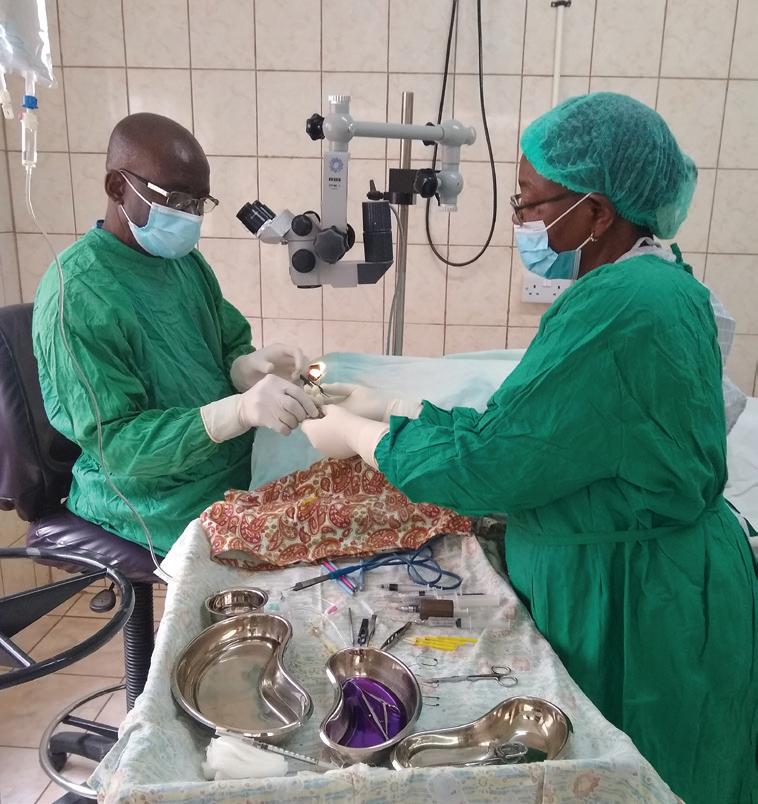
Florence attests to her husband’s commitment: “He just likes to be with the patients,” she says with a smile. “He will stay all day, until the last patient has been seen.”
“I was so moved— I hadn’t even wanted to be a missionary!— but … my mindset [changed].”
Florence had always wanted to be a nurse midwife, but she noticed that the missionary doctors where she first worked at Evangel Hospital in Jos, Nigeria, treated patients and difficult cases with greater respect and hope than the doctors who did not know God.
“Between these encounters with the missionaries and with [Emmanuel],” she explains, “I was so moved—I hadn’t even wanted to be a missionary!— but … my mindset [changed]. Gradually, my mind just came around to being a real missionary.”
When the government assigned the couple to a hospital in Mozambique, Emmanuel connected with a Global Ministries representative who asked him, “Do you want to be a missionary?” The question surprised Emmanuel, but he said yes, and the Mefors became missionaries in 2001. After serving in Mozambique and Nigeria, they were assigned to Mutambara Hospital in Zimbabwe and only recently left there to serve at Old Mutare hospital in Mutare.


Play a role in God's big, global story by responding today.
Use the enclosed card or give securely online by visiting giveumcmission.org/biggerstory.
“When I am with patients,” says Florence, “I feel such joy within me. … [A]nytime I’m working I just feel so happy, and I feel that God is with me in everything that I’m doing.”
The Mefors love the service God has called them to. But the challenges are immense, and the opportunities for your support to help are substantial. The patients lining up at the hospital to be seen each day—those whom Emmanuel stays late to evaluate—travel long distances and often live in poverty. Even with their vast experience, the Mefors are astonished that a new mother may leave the hospital without any clothing, blankets or toiletries for her baby. Emmanuel must constantly evaluate patients’ needs and decide if he can help them or if he must have them transported to a larger hospital— and whether they’ll survive the journey.

Innovation and improvisation are Emmanuel’s lifelines. In an under-resourced medical facility, he regularly relies on God’s direction to help him creatively address confounding needs. He tells the story of
a straightforward surgery (although he is a general practitioner, by necessity he also performs surgeries) that was going well until he saw there were no tools to tighten the rods he had just placed in a young man’s leg to mend a fracture. He prayed for insight and suddenly realized that he could use car spanner wrenches to complete the procedure.
Emmanuel’s staff helped him acquire several spanners from the hospital’s one ambulance. He sterilized these by placing them in alcohol and burning off the alcohol. One fit perfectly to tighten the rods, and the surgery was complete. “…[T]he boy got well after two weeks and was able to walk again,” says Emmanuel, still with a sense of awe. “So that’s God for you.”
Through resourcefulness, creativity and consistent prayer, the Mefors exhibit the same hopefulness and compassion that first inspired them among the missionary doctors they knew early in their careers. With your help, their hospital will be better equipped for them to leverage that deep care for others’ well-being into more efficient and effective medical responses.
“For me,” explains Emmanuel, “the mission work requires endurance; it requires that you love your job. If you love it, then you’ll be able to surmount a lot of difficulties.”
Adds Florence, “It’s a big challenge. But at the end of the day, God is merciful.”

María de Lourdes Ramírez Mroczka’s mid-life conversion sparked her passion for mission and the people of Guatemala
María de Lourdes Ramírez Mroczka’s life changed with one visit to a church service. Her immediate conversion to Jesus Christ was a true turning, and it pointed Ramírez Mroczka in the direction of mission, finally leading to her current vocation as a Global Ministries missionary in Guatemala.
“I don’t know how … it is when you are born into a Christian church and you grow up there,” says Ramírez Mroczka, who converted as a middle-aged widow with two grown sons, “but I can tell you that when you are an outsider and Jesus Christ saves your life, you will change. Look at me. I am serving the Lord now, full time.”
Ramírez Mroczka grew up in Puebla, Mexico, the same city where she found herself volunteering as a translator for a Methodist medical mission group two years after her conversion. She was floored by the volunteers’ humility and hard work as they served tirelessly all day long. Inspired by their dedication, she knew, instantly, that she wanted to pursue mission. She became a missionary in 2017, serving first in Nicaragua, and now with the Evangelical National Primitive Methodist Church of Guatemala, where she coordinates VIM groups and empowers women toward income generation through microloans.
When Ramírez Mroczka became a Christian and embraced this calling, her two young adult sons joined her. Now, one is a Global Ministries missionary alongside her in Guatemala, and one lives in the US with his wife, an American he met when she volunteered in Guatemala.
A sweet gift Ramírez Mroczka has received on this journey is her now-husband Richard
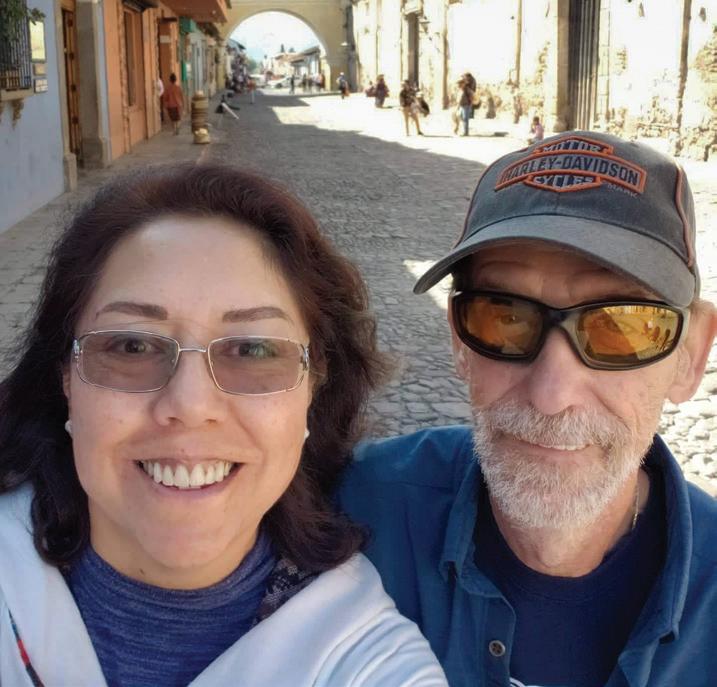
Mroczka, a Methodist missionary originally from Pennsylvania. The two met in Nicaragua and eventually joined in mission and marriage in Guatemala.
“God is first. Mission is first. I [wasn’t] looking for any relationship and—I end up marrying him!” Ramírez Mroczka laughs at the thought, but mostly she is filled with gratitude that her loved ones share her devotion to ministry. “That’s how God puts everything in the right place.”

“I can tell you that when you are an outsider and Jesus Christ saves your life, you will change. Look at me. I am serving the Lord now, full time.”
For Ramírez Mroczka, whether she is developing relationships with rural Guatemalan women, organizing VIM groups, or touring hurricane-ravaged villages to support families with the rebuilding materials your generosity provides, she maintains a posture of humility. When she first quit her job in business and pursued mission, she wanted to fix problems. But actual experience and friendships with marginalized people have changed her approach.
“I have understood that I am nobody to change anybody,” she explains. Even though the Guatemalan women she works with are maximizing their microloans and supporting their families, even though churches and individuals like you are providing opportunities for vulnerable communities, she says, “The only one who changes anybody is the Holy Spirit. … I have not finished learning everything, and I’m open to … continue learning.”
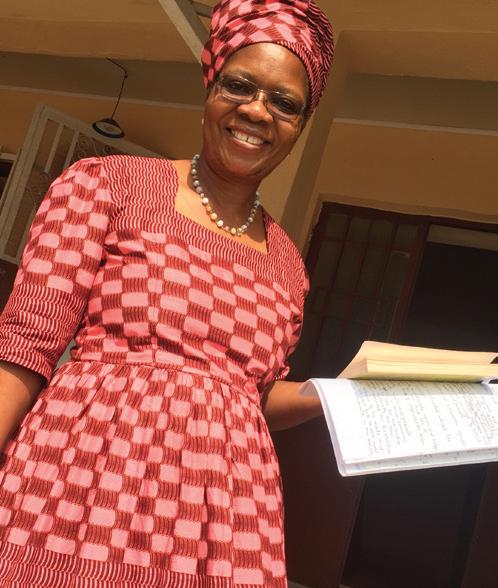
“The journey began when I was around eight years old, in the mid-1970s,” says Natallia Manyeza. At that time, she was growing up in a Roman Catholic family. When Catholic missionaries visited her village in Zimbabwe, the transformation they brought to the lives of her vulnerable neighbors sparked within Manyeza a desire to become a missionary and a nun.
However, her parents did not support these dreams, so she attended a teacher’s training college. One day during her time there, three different groups from the Christian Union came to her on the same day with the same message: Jesus loves you and wants you to surrender your life to him. After some meditation, Manyeza surrendered her life to God in a way she hadn’t before. But her vocational trajectory continued toward education, not mission.
Instead of becoming a nun, Manyeza married and had four children. She and her husband, a medical doctor, began working at Old Mutare mission hospital in Zimbabwe. Surrounded by missionaries at the hospital and at nearby Africa University, Manyeza’s old longing was rekindled. However, at the time she pursued pastoral ministry and later a master’s degree in peace and governance.
In 2018, when she graduated with her master’s degree, her husband—who had become a missionary in 2008— was re-assigned to a hospital in Sierra Leone. Manyeza joined him there and was finally called to be a Global Ministries missionary in 2020. She was assigned to teach at the United Methodist University-Sierra Leone in Freetown.
Today, your gifts help Manyeza teach courses in conflict resolution and gender and development to students living in a post-conflict, patriarchal society. “…[S]ometimes it’s emotional,” she says, “because some of the things you are talking about are things [the students] have gone through, and some of them are still hurting.”
“He has allowed me to work as a missionary, which was something I was longing for for a very, very long time. … And he’s allowing me to show his love to other people.”
She has seen a change in her mostly male students regarding their valuation of women: “I actually have an appointment with the wife [of one student], because she wants to see the person who changed her husband!”
Although being a missionary in Sierra Leone fulfills a dream, the transition has had its challenges. But Manyeza feels that practicing the spiritual disciplines she teaches in one of her courses— prayer and fasting, Bible study, meditation, and journaling—are “sustaining me in my ministry, as a lecturer, and in this country, which is very, very far away from home.”
“God has given me all these opportunities,” says Manyeza. “He has allowed me to work as a missionary, which was something I was longing for for a very, very long time. … And he’s allowing me to show his love to other people.”
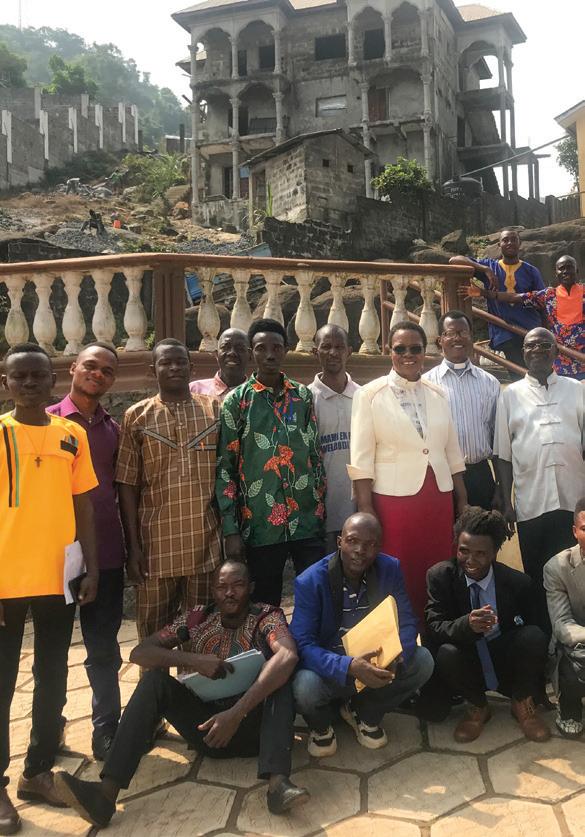


Your monthly gift provides the steady support missionaries need to nurture and deepen community relationships. Scan the QR code with your smartphone’s camera or visit giveumcmission.org/biggerstory and learn more about becoming a Sustaining Giver. Simplify your giving and maximize your impact.